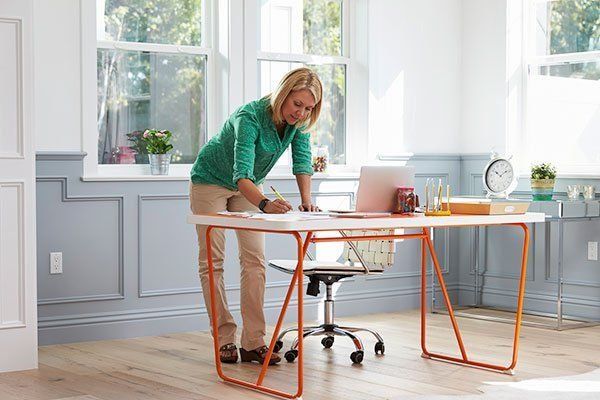Are you stressed? I certainly am — and it's nothing new.
Indeed, the only thing that surprises me about my own stress is how it finds new ways to manifest: neck and shoulder pain that leads to trouble sleeping that leads to overeating, and so on.
If you're like me, your racing mind loves to travel far from the task at hand to circle around unnecessary worries, anxious thoughts and never-ending to-do lists. But you're also likely to know that exercise is nature's stop sign, helping our minds take a much-deserved break.
It's just that it's always so hard to make time for exercise—am I right?
These days, Pilates is my exercise of choice, and now that I work from home on a flexible schedule, I am able to put at least a few of the hours I once spent commuting into attempting teasers, roll-ups and planks. I'm rarely happy at the start of class but by the end, my body is taller, my core is tighter and my mind is clear and ready to start the day.
I'm not going to say it's easy to find time for yourself but I am going to say it's time you do. Like you, my plate overflows with family and work duties. It's taken me 15 years of working motherhood to get to the point where I can schedule my week to include regular time for my own health while still getting everything else done—and I've been writing about the power of flex for nearly as long!
Because I know firsthand the power that flex has had in my life to make everything work, it's something I want all employees to have.
That's why, since 2013, I have set aside a special day to share how flexible work helps me make it all happen, and I encourage you to join me in the conversation. National Flex Day (#nationalflexday), held the third Tuesday of National Work and Family Month, is a great way to share our stories and the positive impact that flexible work can have on our own self-care.
This is no small thing. At HealthyWomen, we know that we women are notorious for ignoring their own health needs even as we serve as chief caregiver to our families. For example, our recent HealthiHer survey found that 45 percent of women between the ages of 30 and 60 do not make time to focus on their own health.
A big reason for that high number is inflexible work hours. Research from Werk, a workplace consultancy, finds that current workday structures make it difficult for:
- 36 percent of employees to make time for exercise and healthy living
- 26 percent to be available for periodic health appointments
- 30 percent to be available for recurring health appointments
- 29 percent to manage a physical condition or chronic illness
- 30 percent to get enough sleep at night
In other words, you're not alone.
But here's the good news: Research also finds that employees who can set their own schedule and/or choose whether to work from home on some days report better self-care behaviors. For example, a review of 10 workplace studies found that self-scheduling "improved a variety of health metrics, including reduced exhaustion, improved sleep (both duration and quality), lowered blood pressure, improved mental health and better self-rated health status."
Not too shabby. Considering other research that finds flex also lowers "presenteeism"—as in, showing up to work sick and infecting everyone around you—while also increasing productivity, I think we all have a story to share.
Please join me today (and every day) on our HealthiHer Facebook page to share how flex works in your life—and how it helps you #BeHealthiHer—and we'll be sure to share our stories as well. If you need help asking for flex or making it work for you and your health, let us know that too.
Because, as always, we're stronger together.







